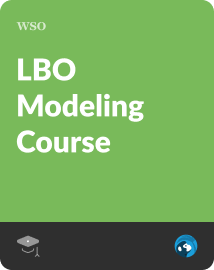London Stock Exchange (LSE)
It is considered the largest stock exchange in Europe and the principal stock exchange in the United Kingdom.
What Is the London Stock Exchange (LSE)?
The London Stock Market (LSE) is considered the largest stock exchange in Europe and the principal stock exchange in the United Kingdom. The Financial Times Stock Exchange (FTSE) 100 Share Index is also known as the Footsie.
Footsie is the most popular index, comprising 100 of the LSE's top blue-chip stocks. The provincial exchanges, which date back over 300 years, were consolidated in 1973 to become Great Britain's and Ireland's Stock Exchange, later renamed LSE.
LSE is physically located in the city of London. In addition, the LSE group was formed in 2007 when the London Stock Exchange and the Milan Stock Exchange, the Borsa Italiana, merged to become the stock exchange group.
The London Stock Exchange (LSE) competes with the New York Stock Exchange (NYSE) in terms of market capitalization, trade volume, access to money, and trade liquidity.
On the other hand, the "Big Bang" refers to the government's deregulation of the London Stock Exchange market on October 27, 1986, which resulted in a modernized electronic trading system and opened the LSE to global capital markets.
In this article, we will understand LSE, the relationship with the Big Bang, methods of the main market, auction exchanges, and electronic communication networks.
Understanding the London Stock Exchange (LSE)
London has long been regarded as one of the world's most important financial cities, serving as a global trade, banking, and insurance hub.
The London Stock Exchange (LSE) has a long history dating back to 1698 when broker John Castaing started displaying stock and commodity values at Jonathan's Coffee House, a famous meeting place for traders to conduct trades.
Castaing called his price list "The Course of the Exchange and Other Things."
In addition, It was clear by 1801 that a formal structure was required to prevent fraud and dishonest traders. Brokers agreed to follow a set of rules and paid a membership fee to become exchange members, thus opening the way for London's first regulated stock market.
LSE gives cost-effective access to the world's deepest and most liquid pools of capital through its primary markets. Furthermore, it is home to a diverse spectrum of businesses and offers listed corporations electronic equities trading.
On the other hand, Footsie is a market capitalization-weighted index that follows the top 100 publicly traded businesses on the London Stock Exchange. The FTSE 100 accounts for more than 80% of the London Stock Exchange market capitalization.
The London Stock Exchange Group now owns and operates the FTSE. It is a prominent measure of the success of the broader market in London, analogous to the Dow Jones Industrial Average and S&P 500 in the United States.
LSE is the most international of all stock exchanges, with thousands of companies from over 60 countries. As a result, it is Europe's leading source of equity-market liquidity, benchmark pricing, and market data.
It also seeks to remove economic and regulatory obstacles from global capital markets by forming alliances with foreign exchanges in Asia and Africa.
The stock exchange does not function as an owner of shares. Instead, it functions as a marketplace for stock buyers and sellers. For example, the New York Stock Exchange NYSE and the Nasdaq are exchanges where stocks can be exchanged.
Even though most stocks are exchanged through a broker, it is critical to understand the interaction between exchanges and the companies that trade. In addition, different exchanges have different requirements to protect their investors.
The main tasks of stock exchanges
Different financial instruments, such as equities, commodities, and bonds, are traded on a stock market. In addition, corporations, governments, and investors meet on exchanges.
- Furthermore, exchanges help to create liquidity in the market, which means that there are enough buyers and sellers to conduct trades quickly and efficiently without delays.
- Exchanges also ensure that trade takes place orderly and fair way, allowing investors and financial professionals to get critical financial information.
After a company's initial public offering IPO, stocks become available on an exchange for the first time. In an initial public offering, often known as the primary market, a company sells shares to an initial group of public shareholders.
Shares can be sold and purchased on an exchange or the secondary market after the IPO floats shares into the hands of public shareholders.
The exchange keeps track of the flow of orders for each stock, and the price of a stock is determined by supply and demand. You may be able to see this price action flow depending on the sort of brokerage account you have.
Let's say a stock's bid price is $40; for example, an investor indicates to the exchange that they are willing to buy it for $40. Also, you may notice an asking price of $41, meaning that someone else is eager to sell the shares for $41.
- The bid-ask spread is the difference between the two.
The London Stock Exchange (LSE) and the Big Bang
The United Kingdom government deregulated the London stock market on October 27, 1986. This deregulation has brought electronic trading to the London Stock Exchange, which replaced traditional open outcry trading.
Also, it was known as the Big Bang because of the huge changes. The new system was more efficient, allowing trading volumes to grow and the LSE to compete successfully with other worldwide exchanges like the New York Stock Exchange.
The Big Bang was part of a government reform program to reduce overregulation and promote free-market competition. Other important changes to the financial markets' structure were introduced due to it.
These include removing the separation between organizations that traded stocks and those that advised investors and eliminating minimum fixed commissions on trades.
As a result of these changes, there was more competition among brokerage firms, which led to a series of mergers and acquisitions. Another Big Bang shift permitted UK brokers' foreign ownership, allowing international banks to enter the London market.
London Stock Exchange (LSE) and the main market
The London Stock Exchange's primary market is one of the most diversified stock exchanges in the world, with businesses representing 40 different industries.
Companies that list on the LSE's primary market gain access to real-time pricing like:
- Deep pools of money
- Benchmarking via the FTSE UK Index Series
- Significant levels of media coverage
- Research and announcements.
The Main Market is one of the London Stock Exchange's equities markets and one of the world's largest stock exchanges. It is normally reserved for larger, more established businesses because it has exacting conditions that must be met before you can join.
The Main Market is not appropriate for all businesses. So instead, some smaller emerging businesses can join AIM- another market operated by the London Stock Exchange.
In addition, companies can access the Main Market in a variety of methods, including the ones listed below:
Premium
Only equity shares issued by commercial trading companies are included in the premium segment. Premium listing issuers are required to meet the UK's super-equivalent regulations, which are higher than the European Union's basic requirements (EU).
Premium-listed companies may be able to access lower-cost funding, and investors seek out companies that adhere to the highest standards due to these higher standards.
A firm with a premium listing may also be eligible to be included in one of the FTSE indices.
Standard
The standard segment allows companies to issue equity shares, Global Depositary Receipts (GDRs), debt securities, and derivatives that meet EU minimum standards. As a result, companies with a standard listing have a lower total compliance burden.
Also, a standard listing assists emerging market companies in attracting investments from London's large pool of available capital.
Other Segments
The high-growth and specialist fund segments are designed specifically for high-growth, revenue-generating firms and highly specialized investment entities targeting institutional and professionally advised investors.
In addition, the high-growth segment is for businesses that are not eligible for a premium or standard listing but need money to expand their companies.
However, joining a public market, such as the main market or AIM, can help you expand and improve your business by raising more funds to extend or develop any of the services or goods you provide.
In addition, before deciding to trade on the stock market, you should have your company independently valued and determine what percentage of your company you are willing to make available for sale on the stock market by issuing shares equivalent to that value.
Usually, the London Stock Exchange Main Market offers potential investors a unit, or units, of your business, but generally in the form of securities. You can list a variety of securities on the Main Market, that can include:
- shares
- depository receipts
- debt securities
- investment entities
The London Stock Exchange trading platform is where a company's shares are traded once they are accepted to the Main Market.
Furthermore, the trading platform is designed to increase liquidity in the stocks traded by bringing together many potential investors, both buyers and sellers, to complete rapid and efficient share transactions.
One of the main pieces of advice you should be committed to following is the high standards of corporate governance demanded of companies listed on the Main Market to attract a diverse variety of investors.
The London Stock Exchange (LSE) & Main Market - the regulatory framework
To be admitted to the Main Market, your company must meet the admission and disclosure Standards of the London Stock Exchange. These requirements specify what a company must accomplish to be qualified for the services provided by the Main Market.
Usually, when you apply to join the MK, you can select whether you want a premium or standard listing. A standard listing requires compliance with European Union basic standards.
- A premium listing requires compliance with an additional body of rules that are "super-equivalent" to, or in addition to, the European minimum requirements.
On the other hand, companies that are not yet ready for a premium or standard listing on the main market can now access finance through the High Growth Segment (HGS), which allows them to fund their expansion while preparing for an official listing.
The listing type you select determines the qualifying criteria, prospectus content, and ongoing obligations that apply to the issuer and the securities it issues.
The main applicable rules for companies joining the Main Market are outlined in three sections of the Financial Conduct Authority's (FCA) Handbook:
- The listing rules - the criteria for entry and the requirements that apply once the stock is listed on the market.
- The prospectus rules - outline the circumstances in which a prospectus is required, as well as the information that must be included.
- Transparency & disclosure rules - the disclosure of information by Main Market businesses is governed by rules that are regularly updated and triggered by events.
Auction exchanges
The auction market, also known as the auction exchange, is where buyers and sellers compete for bids and offers simultaneously.
Also, the current stock price is the maximum amount a buyer is ready to pay for security on an auction exchange, while the seller will accept the lowest price.
- The trades are then matched, and the order is executed once matched.
The open outcry system is another name for the auction market. On the trading floor or pit, brokers and traders communicate physically and verbally to purchase and sell stocks.
However, this system is slowly being phased by electronic systems and some exchanges using the auction system, such as the New York Stock Exchange (NYSE).
On the other hand, the NYSE Closing Auction is the last event of the trading day, and it determines the closing price for each stock by bringing all buyers and sellers together to establish a price for all those involved.
Electronic communication networks (ECNs)
In the alternative trading system, ATS is considered a type of exchange that includes electronic communication networks (ECN).
- They offer a direct connection between buyers and sellers because ECN bypasses market makers and connects buyers and sellers directly.
- It also considers ATS and ECN as an alternative to trading equities on the Nasdaq and other exchanges such as the NYSE and overseas exchanges.
In addition, many innovative and entrepreneurial ECNs are generally beneficial for users because they pose a competitive threat to existing exchanges, lowering transaction costs.
Although some ECNs allow retail traders to trade, most ECNs are primarily used by institutional investors, companies that invest huge amounts of money on behalf of other investors, such as pension fund managers.
- Nasdaq's Interbank Network Electronic Transfer (INET) and Arca Options, both of which are regulated by the NYSE, are examples of ECNs.
Researched and Authored by Naden
Free Resources
To continue learning and advancing your career, check out these additional helpful WSO resources:




or Want to Sign up with your social account?